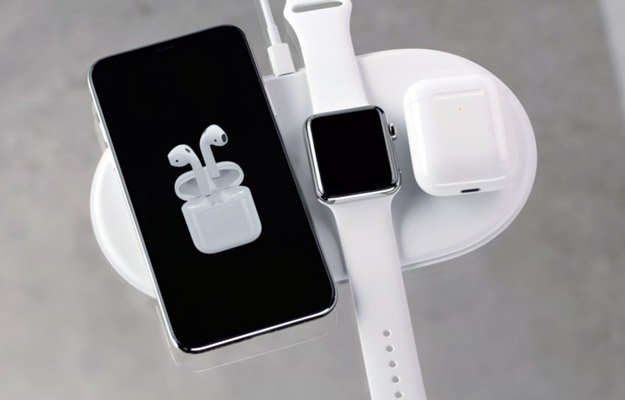Apple's PowerbyProxi Acquisition Bolsters Its Wireless Charging Portfolio
Apple finally joined the wireless charging revolution with the introduction of its iPhone 8, iPhone 8 Plus, iPhone X handsets, bringing a feature to iPhone users that the Android camp has been enjoying for a long time. Hot on the heels of announcing those headsets, Apple has gone out and acquired PowerbyProxi, a wireless power technology outfit in New Zealand that was spun out of the University of Auckland's wireless power center in 2007.
"Our designs and IP is used in many consumer and non-consumer applications around the world by some of the world’s largest companies. We work in close partnership with our customers to turn leading edge resonant wireless power technology into real world solutions to supply power to applications which are difficult or challenging," PowerbyProxi states on its website.

There is no official announcement of the acquisition yet, though Apple confirmed the purchase to Stuff.co.nz, with Apple senior vice president of hardware engineering Dan Riccio saying PowerbyProxi's team would be "a great addition as Apple works to create a wireless future." Riccio also noted that Apple's goal is to "bring truly effortless charging to more places and more customers around the world."
It is an interesting acquisition and one that comes with plenty of questions, chief among them how exactly Apple plans to utilize the PowerbyProxi team. With the new iPhone models and the Apple Watch Series 3, Apple implemented wireless charging using the Qi standard. And come next year, Apple is planning to roll out a charging mat called the AirPower that will be capable of charging iPhone, Apple Watch Series 3, and AirPods all at the same time.
PowerbyProxi's efforts extend well beyond phones and watches. It has developed higher power wireless charging solutions, including ones for robots and drones with autonomous charging. Apple's interest here could be part of a much bigger play, such as developing wireless charging solutions for MacBooks or even automobiles. We will just have to wait and see.
"Our designs and IP is used in many consumer and non-consumer applications around the world by some of the world’s largest companies. We work in close partnership with our customers to turn leading edge resonant wireless power technology into real world solutions to supply power to applications which are difficult or challenging," PowerbyProxi states on its website.

There is no official announcement of the acquisition yet, though Apple confirmed the purchase to Stuff.co.nz, with Apple senior vice president of hardware engineering Dan Riccio saying PowerbyProxi's team would be "a great addition as Apple works to create a wireless future." Riccio also noted that Apple's goal is to "bring truly effortless charging to more places and more customers around the world."
It is an interesting acquisition and one that comes with plenty of questions, chief among them how exactly Apple plans to utilize the PowerbyProxi team. With the new iPhone models and the Apple Watch Series 3, Apple implemented wireless charging using the Qi standard. And come next year, Apple is planning to roll out a charging mat called the AirPower that will be capable of charging iPhone, Apple Watch Series 3, and AirPods all at the same time.
PowerbyProxi's efforts extend well beyond phones and watches. It has developed higher power wireless charging solutions, including ones for robots and drones with autonomous charging. Apple's interest here could be part of a much bigger play, such as developing wireless charging solutions for MacBooks or even automobiles. We will just have to wait and see.

